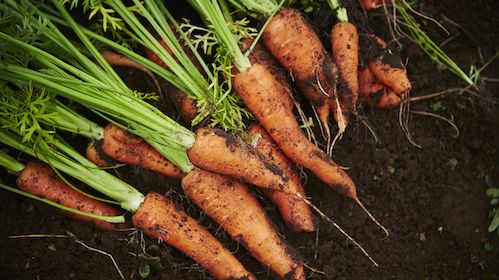
16 July 2021
The second part of the National Food Strategy for England was published on Thursday, calling for reforms to the food system to improve public health and protect and restore the environment. The Strategy's author Henry Dimbleby urges Ministers to guarantee the budget for farm payments until at least 2029 to help farmers transition to more sustainable land use, and to create a Rural Land Use Framework to set out which areas of land would be best suited to different functions. Dimbleby also recommends a National Food System Data Programme to collect and share data on the progress made. ‘Healthy soils’ is a key environmental outcome in the recommended food system performance metrics.
A consortium of farmers, academics, technology businesses and NGOs led by the Farming and Wildlife Advisory Group South-West (FWAG), of which the SSA is part, has been awarded a grant under the Environment Agency’s Investment Readiness Fund to develop and pilot a UK Farm Soil Carbon Code. The project will fill the critical knowledge gaps needed to enable the responsible scaling of agricultural carbon investments.
Microsoft has announced a new request for proposals (RFP) for carbon dioxide removal (CDR) tonnage. The RFP will operate on a rolling basis and projects with CDR tonnage available this fiscal year (July 1, 2021 to June 30, 2022) are encouraged to apply as early as possible. Areas of interest include soil-based projects that demonstrate clear calculations and methodologies.
On Wednesday, the Soil Association and the SSA hosted a stakeholder event ‘Landscape to carbonscape: the roadmap to a soil carbon marketplace’ with over 260 delegates to discuss the UK soil carbon marketplace, the principles at stake and stakeholder needs. A briefing and recording will be available shortly.
The Prince of Wales spoke on the BBC Radio 4 Today programme about the value of small farms and the importance of growing nutritious food without destroying the soil that grows it. He calls for profound and rapid change to reverse declining natural ecosystems and transitioning to sustainable farming practices to restore soil fertility and capture carbon.
An article in Farmers Weekly explores Leicestershire farmer Max Chenery’s journey to refining his regenerative farming plans. Chenery learnt from watching online webinars during lockdowns, particularly those of BASE-UK, an organisation for farmers interested in regenerative or conservation agriculture. This has led him to reduce inputs and focus on soil health.
A global field survey in urban greenspaces across 56 cities from six continents found that urban soils are important hotspots for soil bacterial, protist and functional gene diversity, and support highly homogenised microbial communities worldwide.
Recently published research studied the effects of soil structure on the fate of litter-derived organic matter. It concluded that particulate organic matter surfaces are not only hotspots for microbial activity, but are also important for the occlusion and formation of mineral-associated litter-derived organic matter regardless of soil texture, and ultimately, for the regulation of soil organic matter persistence.